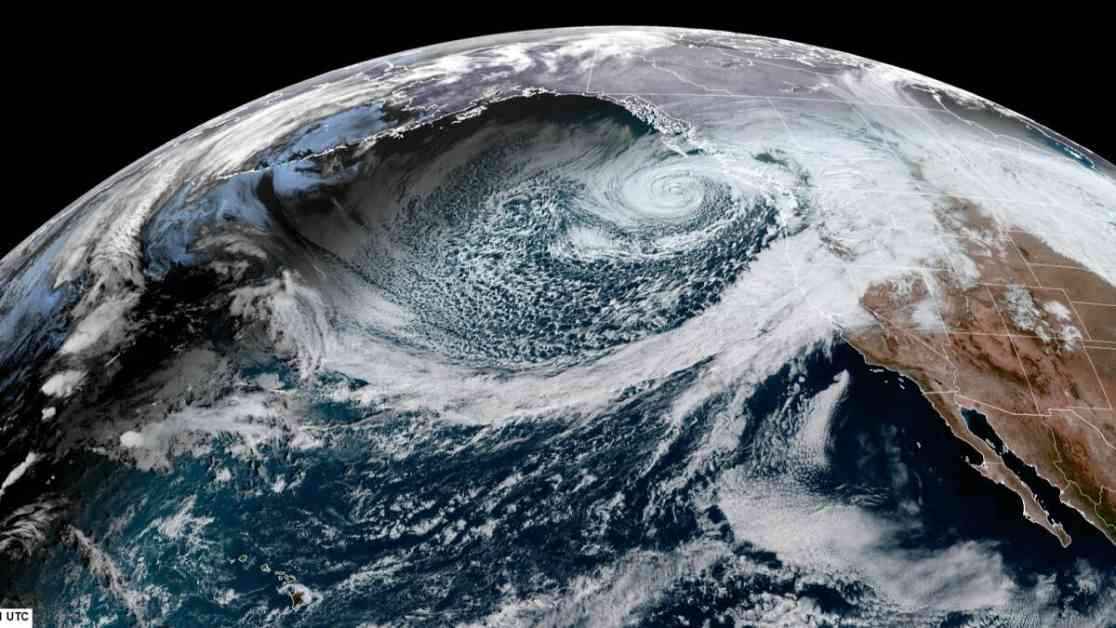As the sun rose on Thursday, a wave of uncertainty swept through the National Oceanic and Atmospheric Administration (NOAA) and the National Weather Service (NWS) as federal job eliminations were announced. The news sent shockwaves through the scientific and environmental community, sparking concerns about the potential harm these cuts could inflict on Americans in need of vital services.
The full scope of the layoffs at NOAA was not immediately clear, but reports surfaced that hundreds of scientists and experts had been notified of their termination. These job cuts come as part of a broader initiative by Elon Musk’s Department of Government Efficiency to streamline federal agencies, despite the critical services they provide.
In a statement released on Thursday, U.S. Rep. Jared Huffman (D-San Rafael) criticized the cuts, highlighting the essential role NOAA plays in providing accurate forecasts, severe weather alerts, and emergency information to people across the nation. The elimination of key personnel and programs, he argued, could have life-threatening consequences.
While NOAA remained tight-lipped about the specifics of the job cuts, a spokesperson emphasized the agency’s commitment to its mission of serving the American public and ensuring environmental and economic resilience. However, the impact of these layoffs was already being felt by employees and their families, many of whom took to social media to share news of their termination.
One notable casualty of the cuts was NOAA’s Great Lakes Environmental Research Laboratory, which announced the discontinuation of its public communication services due to a reduction in staff. This move raised concerns among scientists worldwide about the potential repercussions of scaling back essential operations within the agency.
Expert Voices Speak Out
Daniel Swain, a climate scientist at UCLA, warned that the private sector would struggle to fill the void left by significant cuts to NOAA and the NWS. He cautioned that dismantling these agencies could have severe consequences for public safety and the nation’s ability to respond to weather and climate-related disasters.
The Trump administration’s decision to slash NOAA’s workforce drew sharp criticism from environmental advocates and scientists, who decried the move as reckless and short-sighted. Juan Declet-Barreto, a senior social scientist at the Union of Concerned Scientists, emphasized the critical role NOAA plays in providing essential data and science used by a wide range of industries and individuals.
Miyoko Sakashita, the oceans program director for the Center for Biological Diversity, stressed the importance of protecting NOAA’s vital programs that safeguard wildlife, ocean safety, and environmental conservation efforts. She expressed a commitment to defending these services in the face of mounting challenges.
Implications of the Cuts
Jeff Watters, the vice president of external affairs for the Ocean Conservancy, highlighted the multifaceted impact of the job cuts on NOAA’s ability to carry out its core functions. From tracking weather patterns and climate data to responding to emergencies and monitoring ocean health, NOAA’s role in safeguarding the environment and public safety is indispensable.
As the dust settles on the mass firings at NOAA and the NWS, the broader implications of these cuts are beginning to come into focus. The loss of scientific expertise, essential programs, and critical data could have far-reaching effects on communities, businesses, and individuals who rely on NOAA’s services every day.
In the weeks and months ahead, the true extent of the damage caused by these job eliminations will become apparent. The decision to scale back NOAA’s workforce has raised concerns about the nation’s preparedness for weather emergencies, climate-related disasters, and environmental threats. The fallout from these cuts may test the resilience of communities and the nation’s ability to adapt to a changing climate.
As stakeholders grapple with the aftermath of the firings, questions linger about the future of NOAA, the NWS, and the services they provide. The human cost of these cuts, both in terms of lost jobs and compromised safety, underscores the urgency of preserving essential government programs that protect lives and livelihoods. The road ahead may be uncertain, but the importance of maintaining a robust and effective NOAA has never been clearer.


